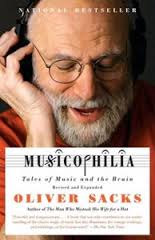Oliver Sacks is dead. 
I met him once. We talked about folklore and Williams Syndrome. He shared his theory that this rare condition inspired tales of leprechauns and changelings. Children diagnosed with Williams Syndrome have unusual facial features, developmental impairments, and a great facility for music.
His book about music and neurology inspired me to write about music and magic.
He was one of the great storytellers. He restored a sense of narrative to the practice of medicine. Doctors had gotten rid of stories. They had banished any sense of lived experience from their meticulous case histories and lists of symptoms. They thought it made them better doctors. But our understanding is always story-shaped. Identity and history are stories that we tell about ourselves, to ourselves, and to everyone else. Scientific theories are stories we tell about the bits of the universe that we’ve noticed. Medical case histories are stories about injuries and disease–and what it’s like to live in their company.
Oliver Sacks understood that, and he shared his understanding.
 “When people die, they cannot be replaced,” he wrote a few months ago. “They leave holes that cannot be filled, for it is the fate — the genetic and neural fate — of every human being to be a unique individual, to find his own path, to live his own life, to die his own death. I cannot pretend I am without fear. But my predominant feeling is one of gratitude.”
“When people die, they cannot be replaced,” he wrote a few months ago. “They leave holes that cannot be filled, for it is the fate — the genetic and neural fate — of every human being to be a unique individual, to find his own path, to live his own life, to die his own death. I cannot pretend I am without fear. But my predominant feeling is one of gratitude.”
Thank you, Dr. Sacks.